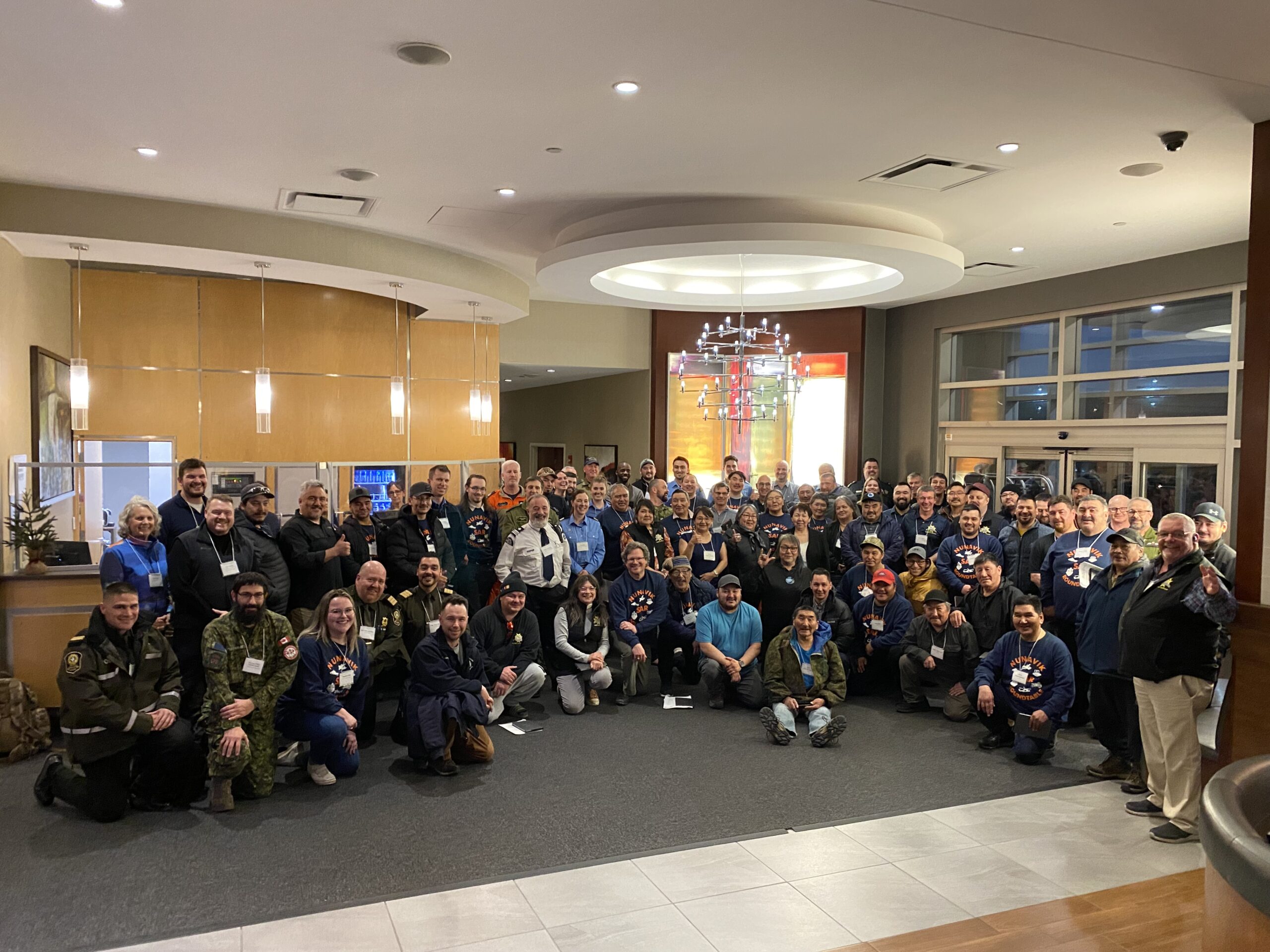
The Nunavik SAR Roundtable was created in response to repeated calls from Nunavimmiut for a review of the region’s SAR system. In December 2022, Kativik Civil Security and its academic partners held the first roundtable in Montreal. It was never envisioned as a one-and-done event, however. The roundtable is an ongoing initiative that provides the time and space to discuss and improve the search and rescue system, offers training opportunities, helps to organize other SAR activities, and strengthens the relationships required for effective SAR operations.
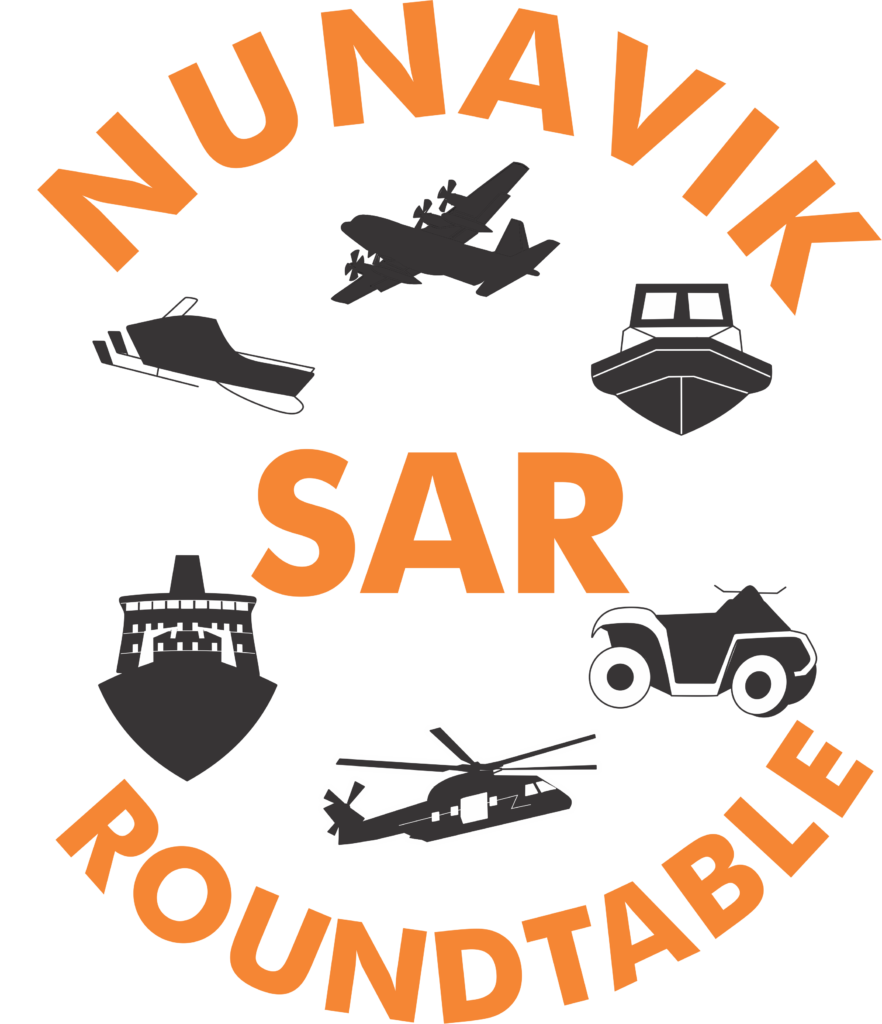
Nunavik SAR Roundtable 2022
Montreal, Quebec, 11-13 December
The first roundtable brought over forty community representatives and fifty participants from local, regional, provincial, and federal organizations involved in SAR to:
- Evaluate current SAR policies and plans
- Examine the SAR risks facing communities
- Assess current SAR capabilities
- Identify strengths, challenges, and areas for improvement
- Document best practices and lessons
- Discuss solutions and new approaches
The roundtable also provided an opportunity for community responders to learn from one another and develop a community of practice, while asking their government partners for clarity on policy, procedural, and operational issues. Most importantly, the roundtable offered an opportunity to strengthen the collaborative relationships required for SAR operations in the region. Given that relationship building was a primary objective, the roundtable prioritized the personal conversations shared over coffee and meals as much as the broader discussions involving the entire group.
Funding and support for the roundtable came from Kativik Civil Security, Social Sciences and Humanities Canada, Department of National Defence Research Initiative, North American and Arctic Defence and Security Network, Irving Shipbuilding, Canada Research Chairs Program, Canada-Inuit Nunangat-United Kingdom Arctic Research Programme, Air Inuit, and Canadian North.
Using information collected at the roundtable and follow-up interviews with key participants, a report was produced on the State of Search and Rescue in Nunavik.
Agenda and participant list / Nunavik SAR Roundtable 2022: Summary Report
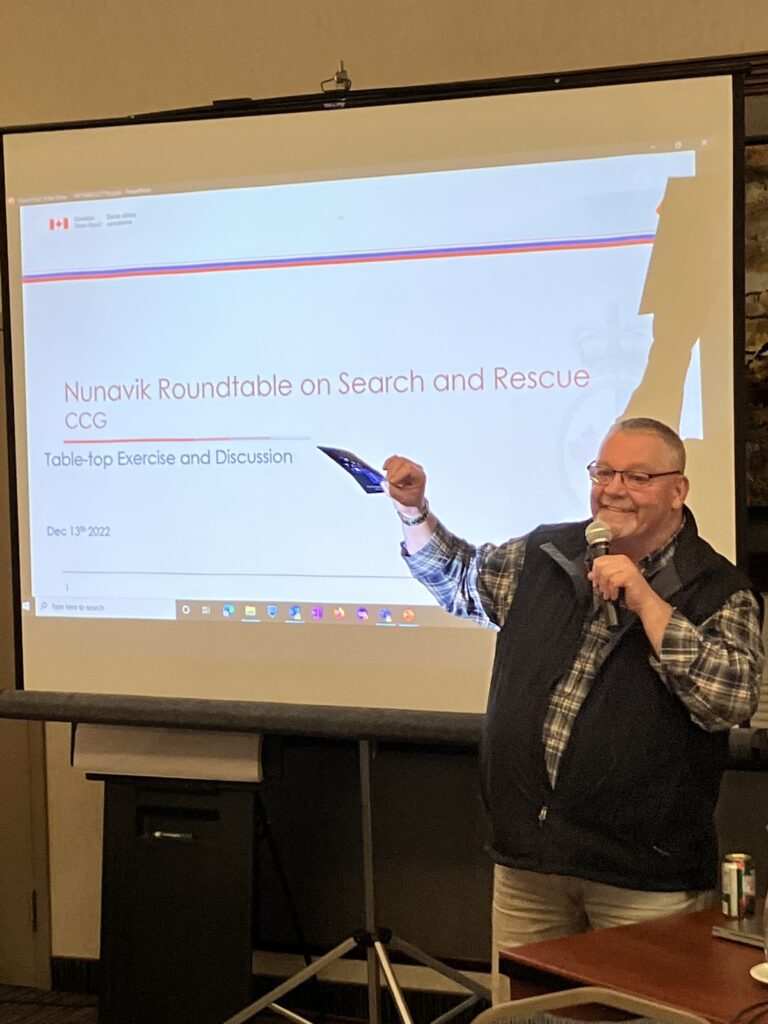
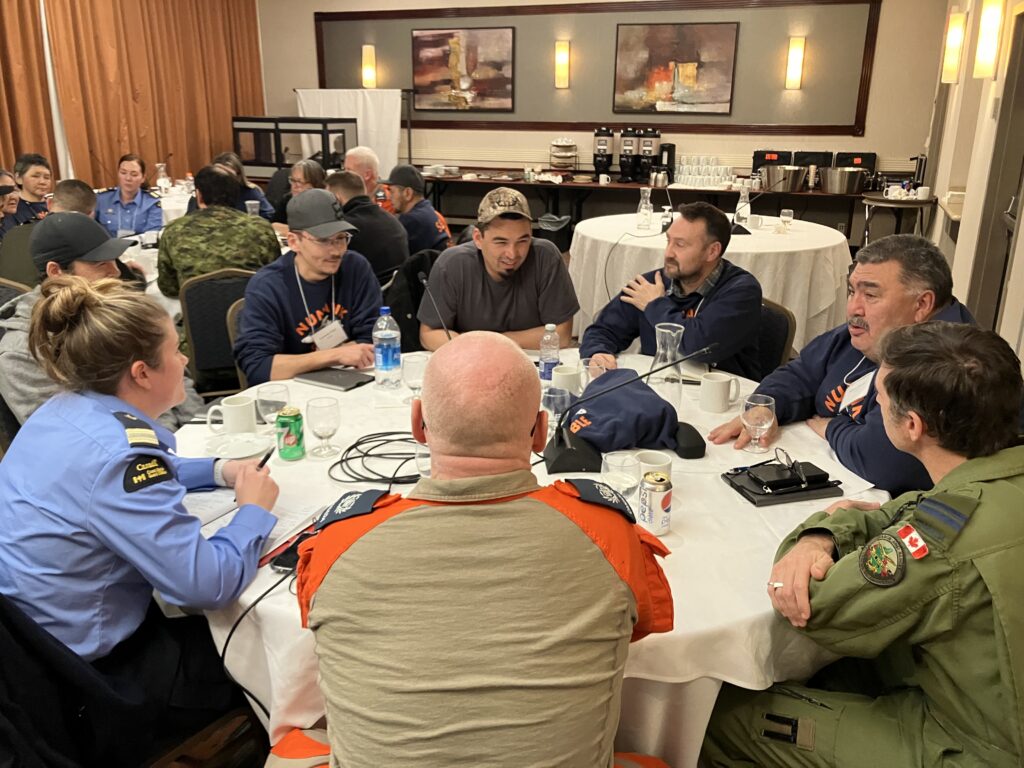
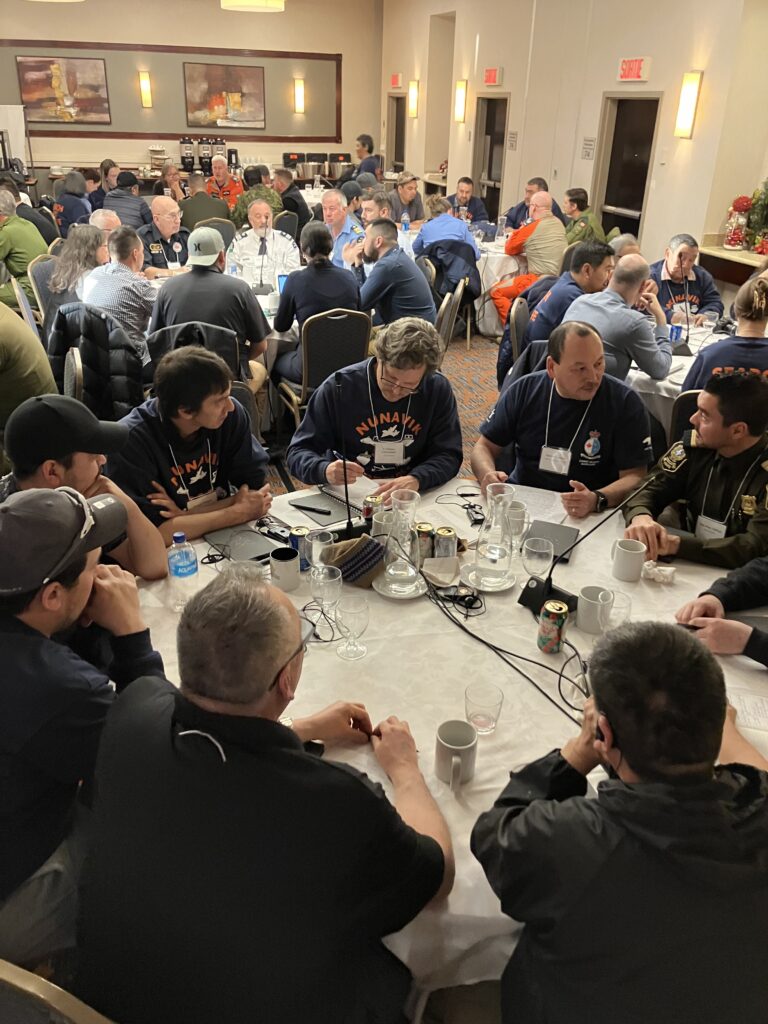
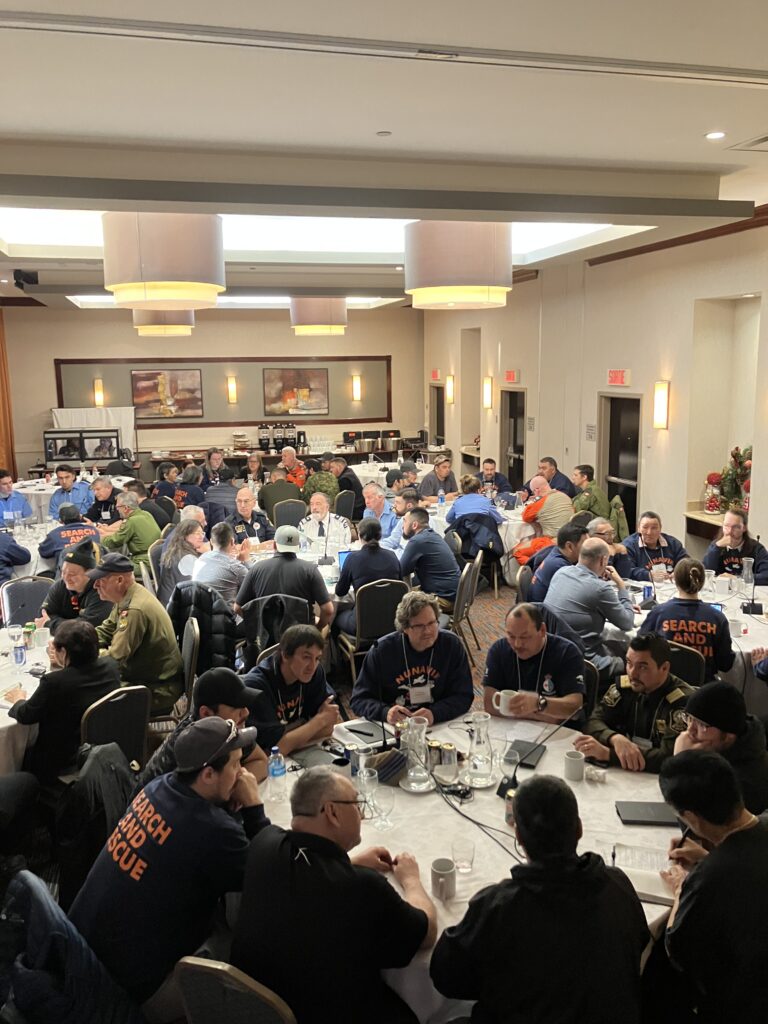
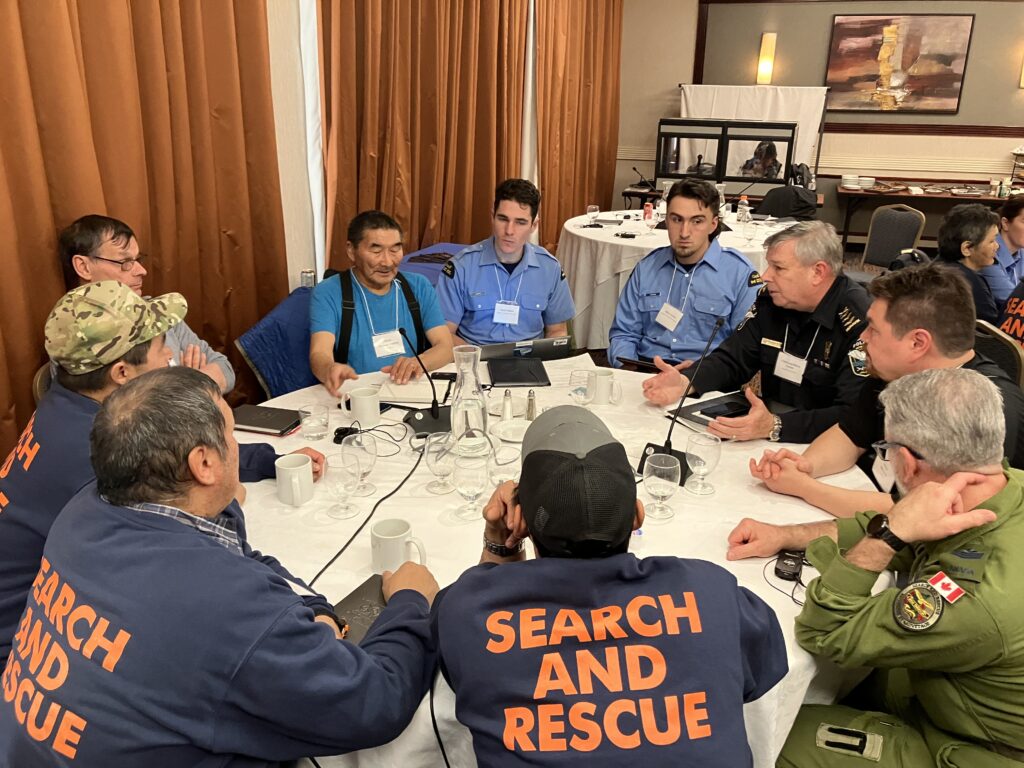
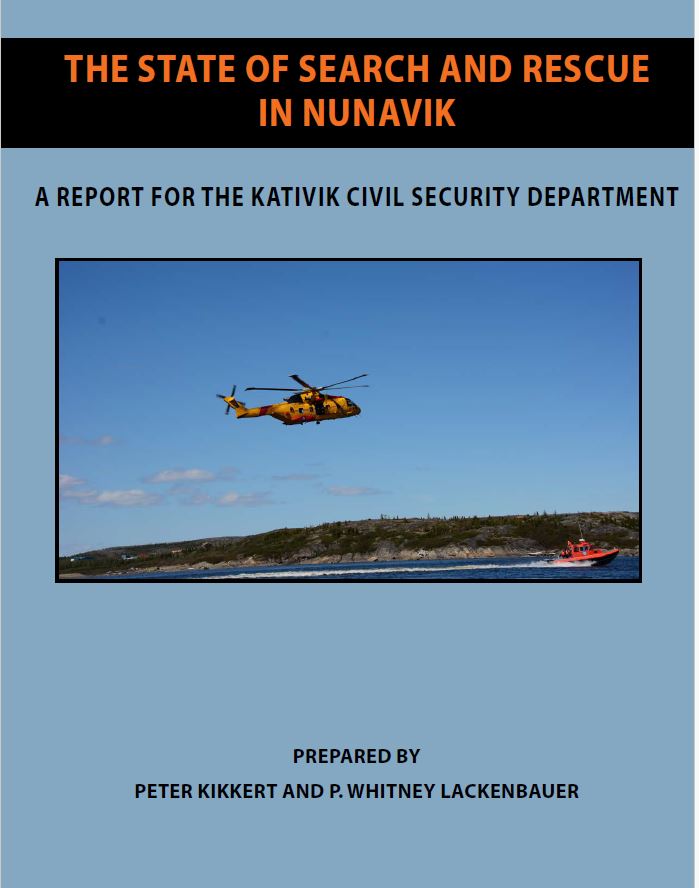
Trenton Arctic SAR Exchange 2023: Working Better Together
Trenton, Ontario, 3-5 November
Community representatives at the Nunavik SAR Roundtable 2022 suggested an exchange between the Joint Rescue Coordination Centres (JRCC) and Nunavimmiut responders could strengthen relationships and improve SAR operations in the region. They also wanted an opportunity to discuss SAR best practices with responders from other parts of the Arctic.
Working with Joint Rescue Coordination Centre (JRCC) Trenton, the roundtable’s academic partners arranged Arctic SAR Exchange 2023, which brought Northern responders from Nunavik, Nunavut, and the NWT to Canadian Armed Forces Base Trenton to learn how the JRCC functions, discuss operational level challenges, and strengthen collaboration. The exchange led to:
- better knowledge about different roles and responsibilities within the SAR system
- greater understanding of how local/traditional knowledge can enhance the support provided by the JRCCs,
- concrete steps to improve how JRCCs, RCAF personnel, Northern governments, and community responders work together during SAR operations
- the sharing of lessons and best practices between community responders from across the North
Responders also had the opportunity to learn about SmartICE – a social enterprise that provides communities with the situational awareness required to plan for safe on-ice travel and boating routes – and its use in SAR prevention and response.
Participants from the Nunavik SAR Roundtable included Craig Lingard and Kris Tukkiapik from Kativik Civil Security, Jeff Gordon (Coast Guard), George Kauki (Kuujjuaq SAR), Michael Cameron (Salluit SAR), Tony Annanack (Kangirsualujjuaq SAR). Charlie Kumarluk (Uumajuit SAR) could not attend due to a flight cancellation.
Funding and support for the exchange came from the Canada-Inuit Nunangat-United Kingdom Arctic Research Programme, Social Sciences and Humanities Canada, North American and Arctic Defence and Security Network, Canadian Armed Forces, and the Canadian Coast Guard.
Agenda and participant list / Final Report
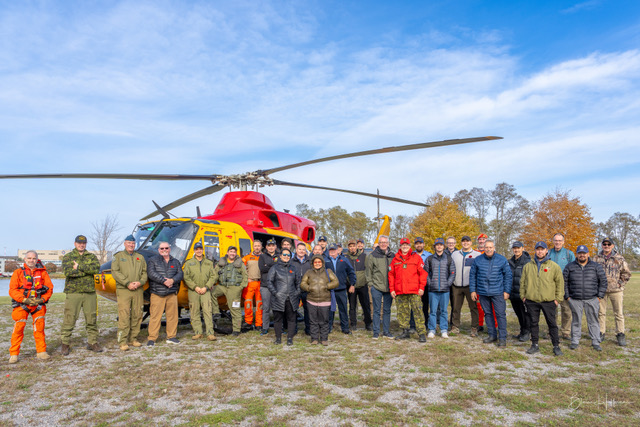
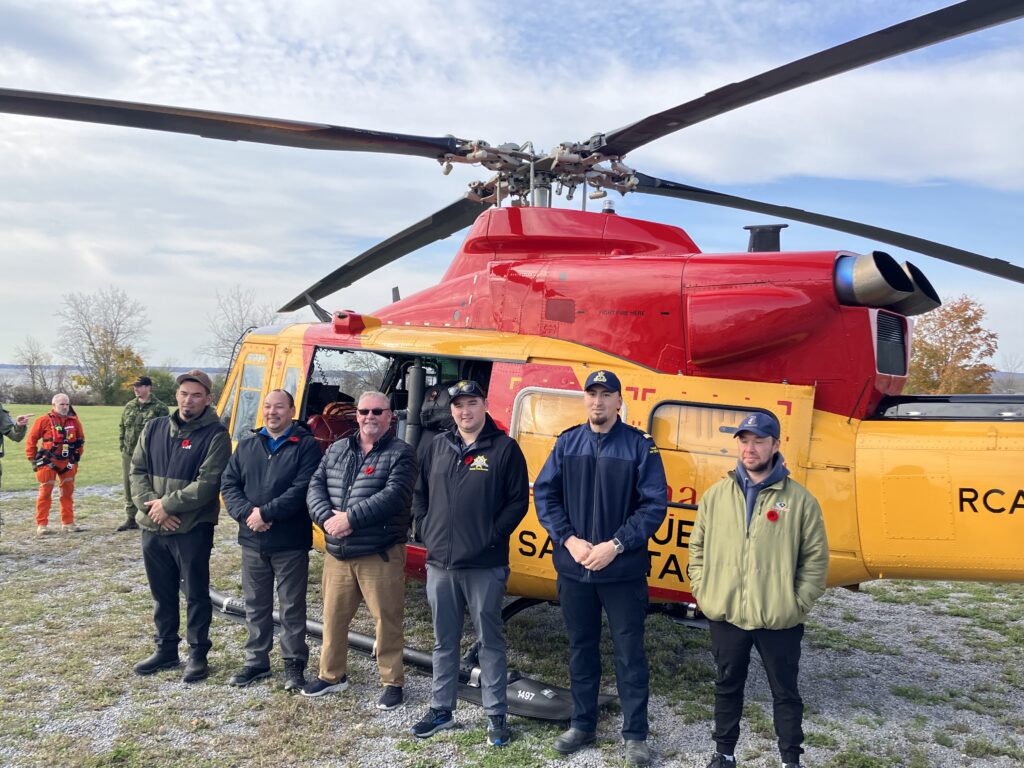
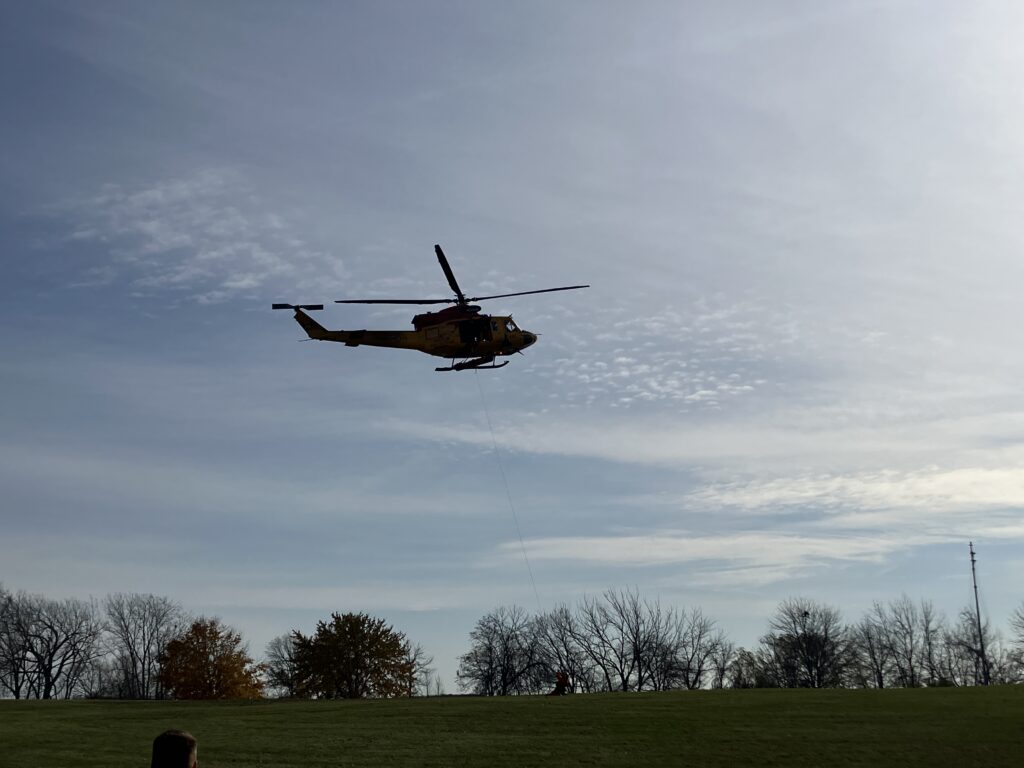
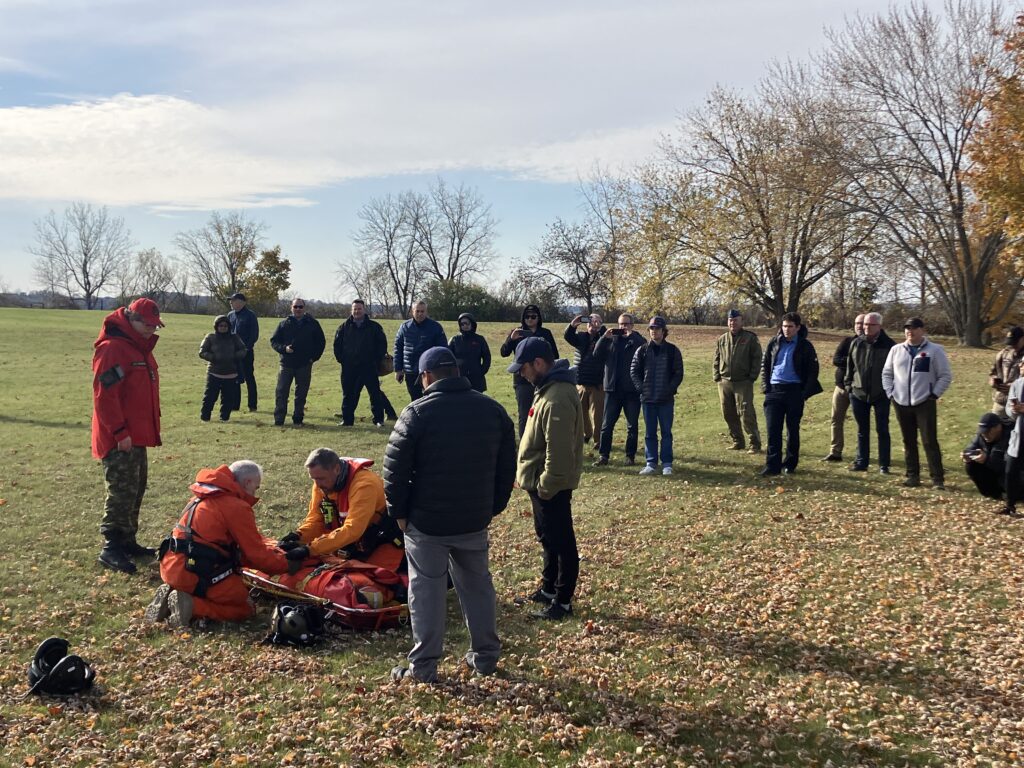
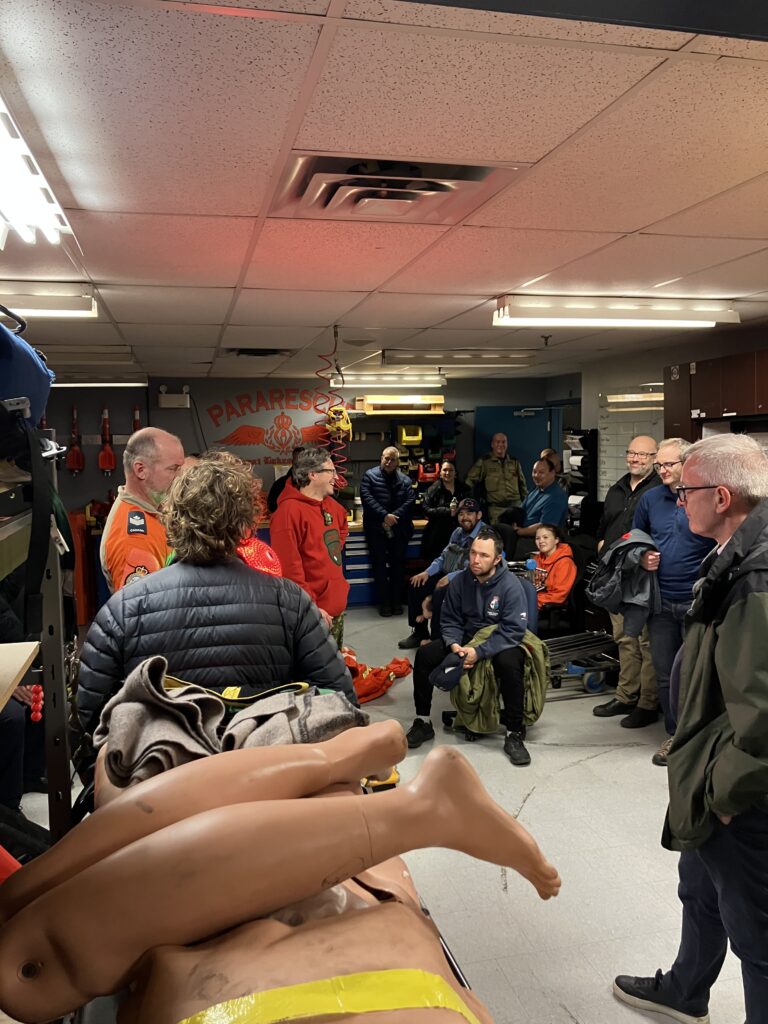
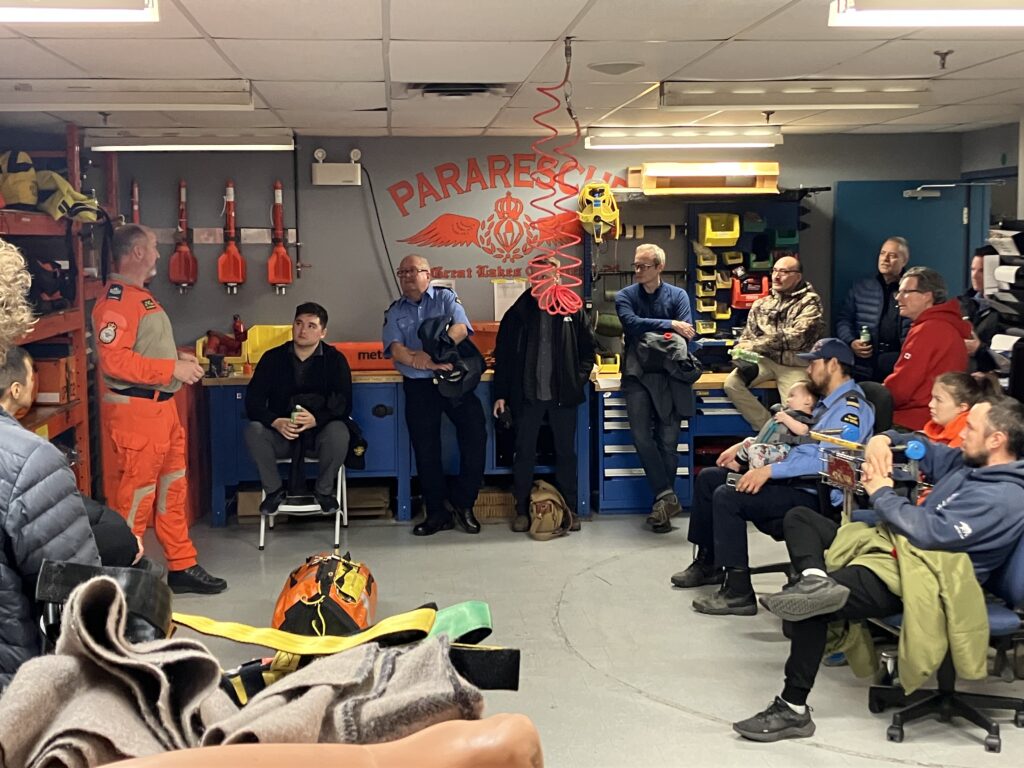
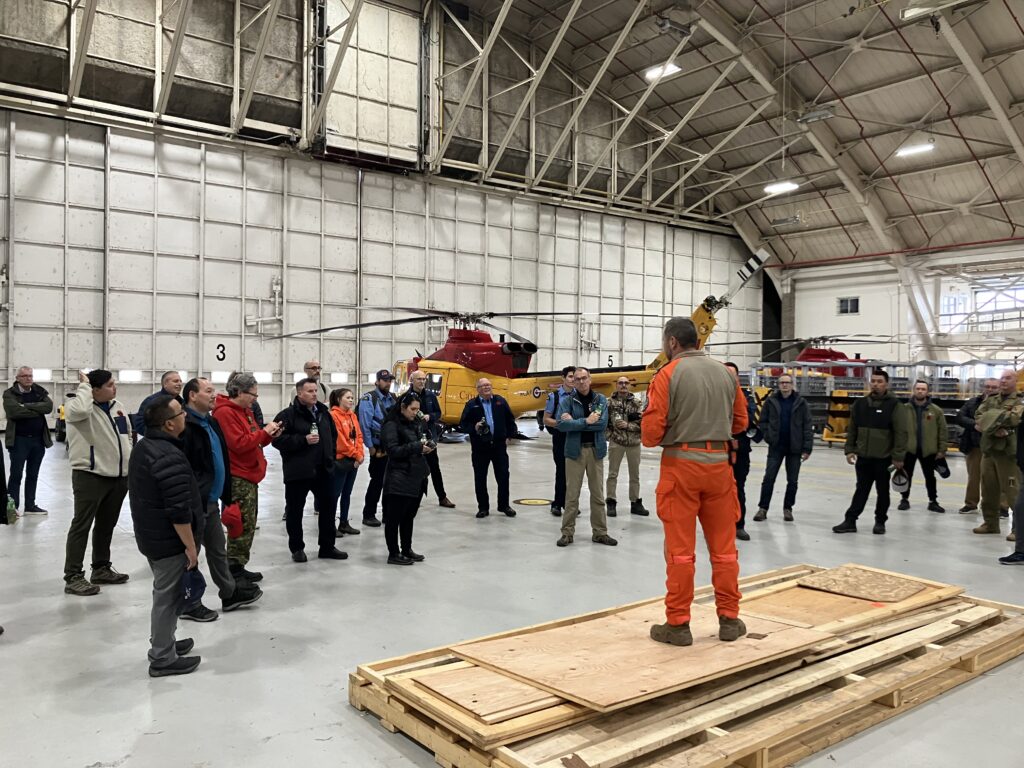
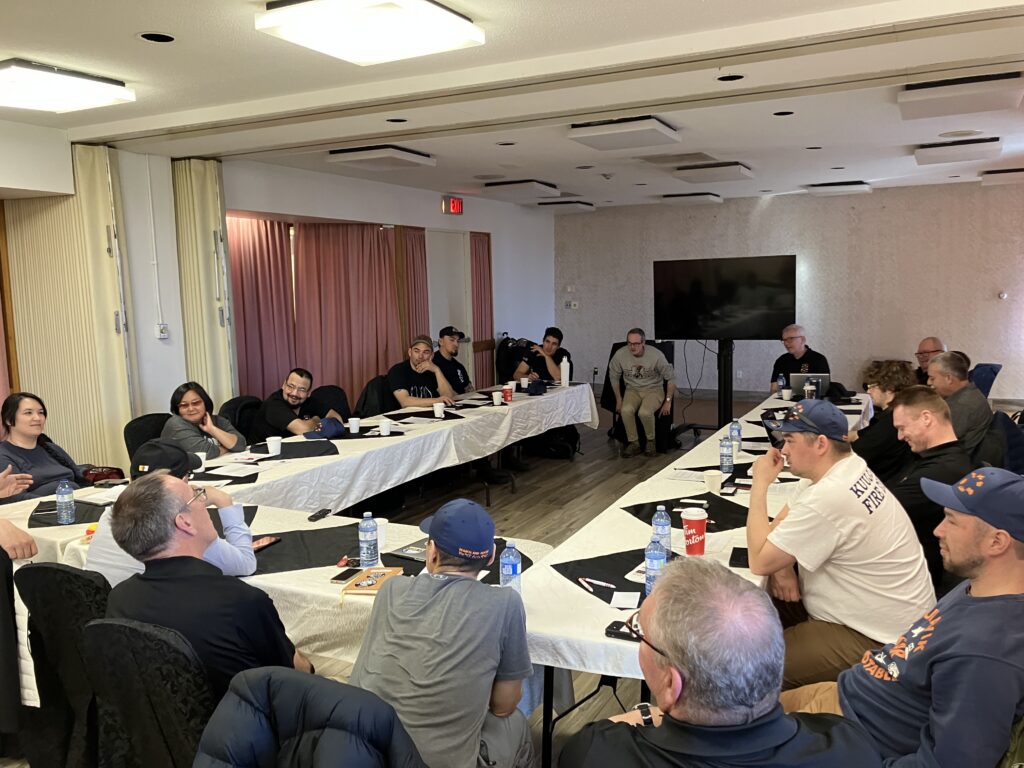
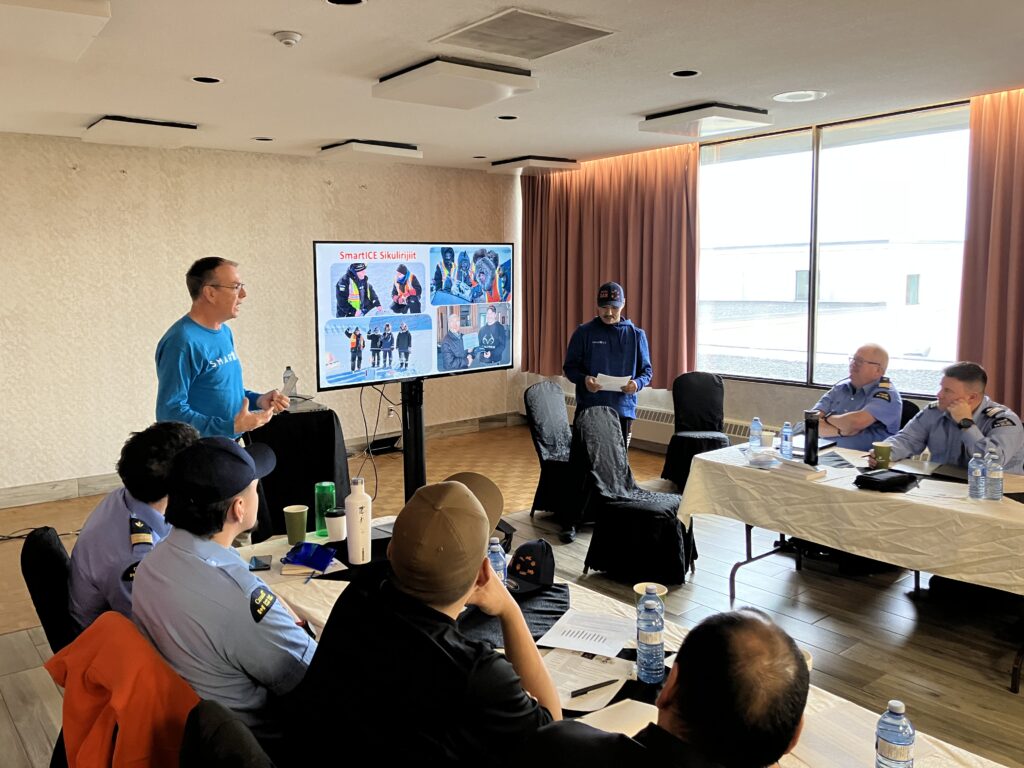
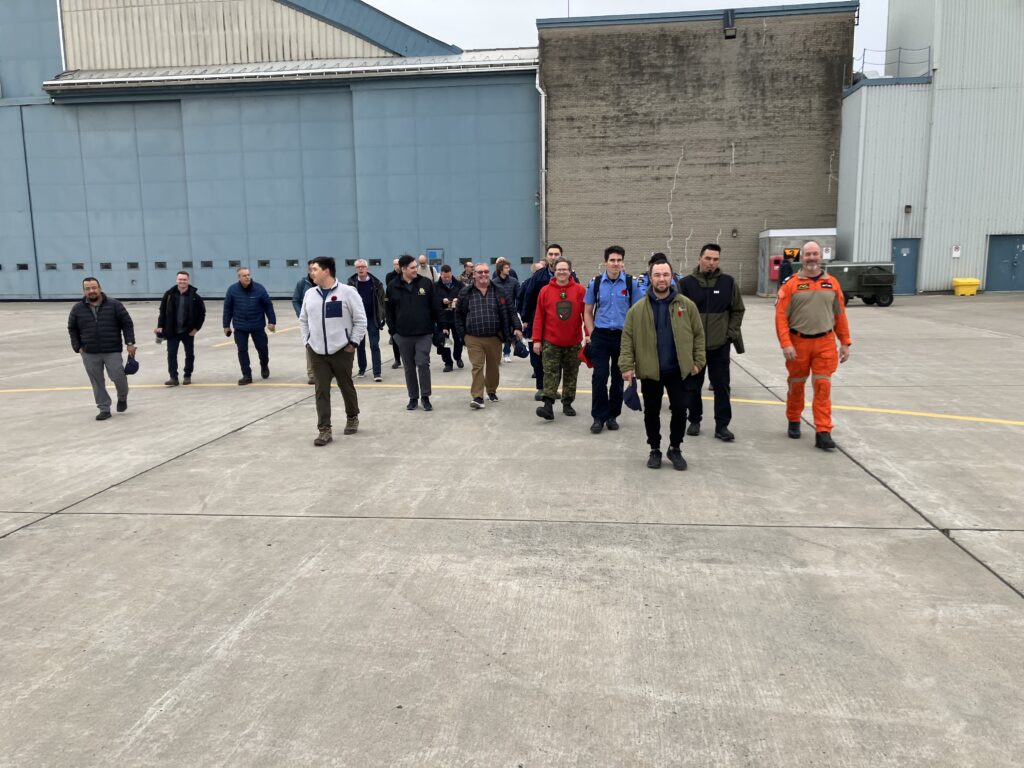
Nunavik SAR Roundtable 2024: Standard Operating Guidelines
Montreal, Quebec, 11-14 April 2024
At the first Nunavik SAR Roundtable responders emphasized that each community in the region does search and rescue in a different way. “There are 14 communities, 14 ways of doing SAR,” was a common remark. The lack of effective standard operating procedures/guidelines (SOP/SOGs) can generate confusion, slow down response times, impede inter-community searches, and put responders at risk.
The primary purpose of this roundtable was to discuss and develop SOP/SOGs for marine and ground search and rescue operations in Nunavik. Well-constructed SOP/SOGs can create efficiencies, break complex processes down into step-by-step instructions, ensure everyone knows their roles and responsibilities, facilitate cooperation, coordination, and communication between different agencies and communities, and make searches safer.
Part of the roundtable was also devoted to providing participants with practical SAR coordination and planning training, particularly by using lessons and best practices from past operations in Nunavik.
Agenda and participant list / Nunavik SAR Roundtable 2024: Summary Report
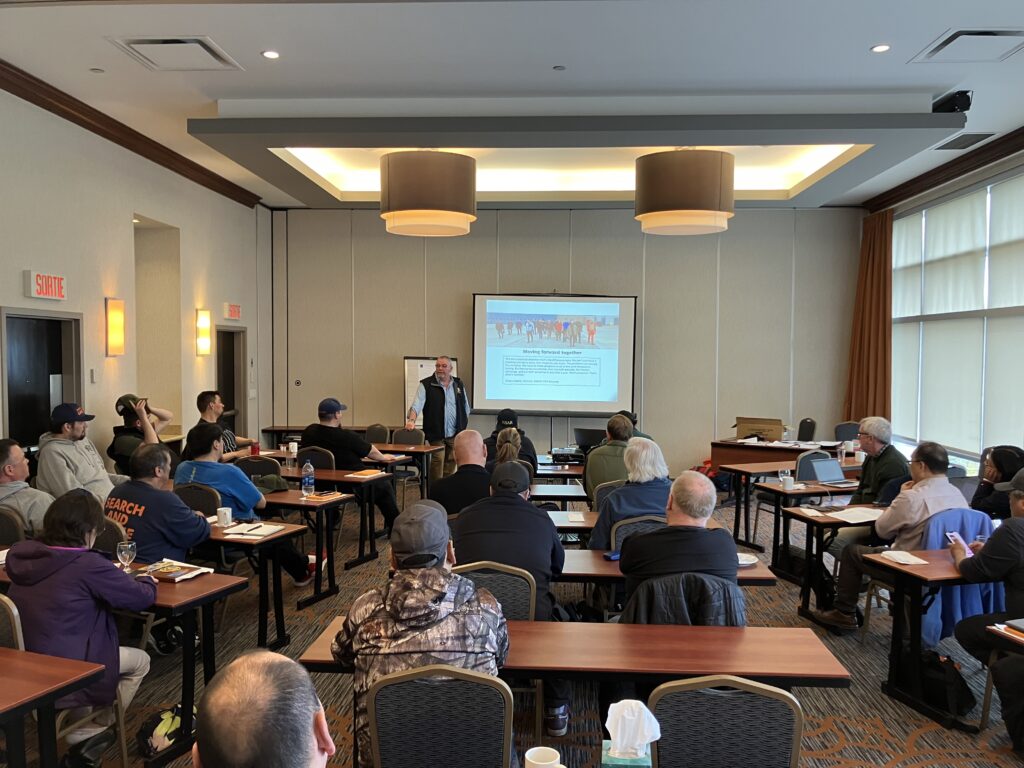
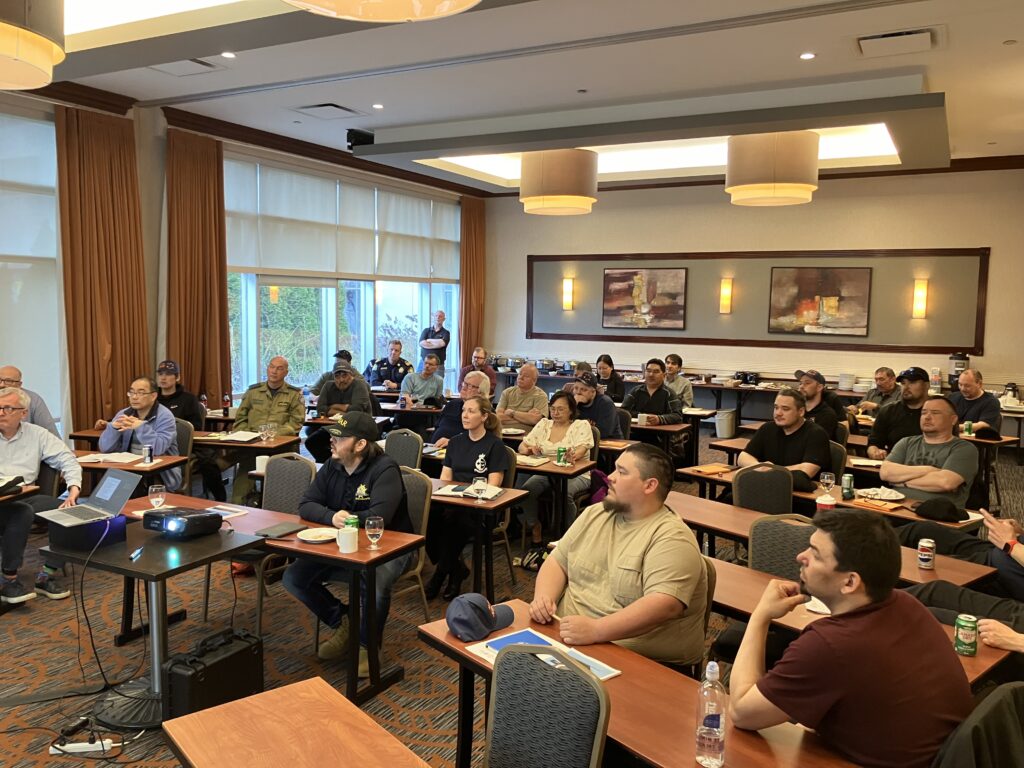
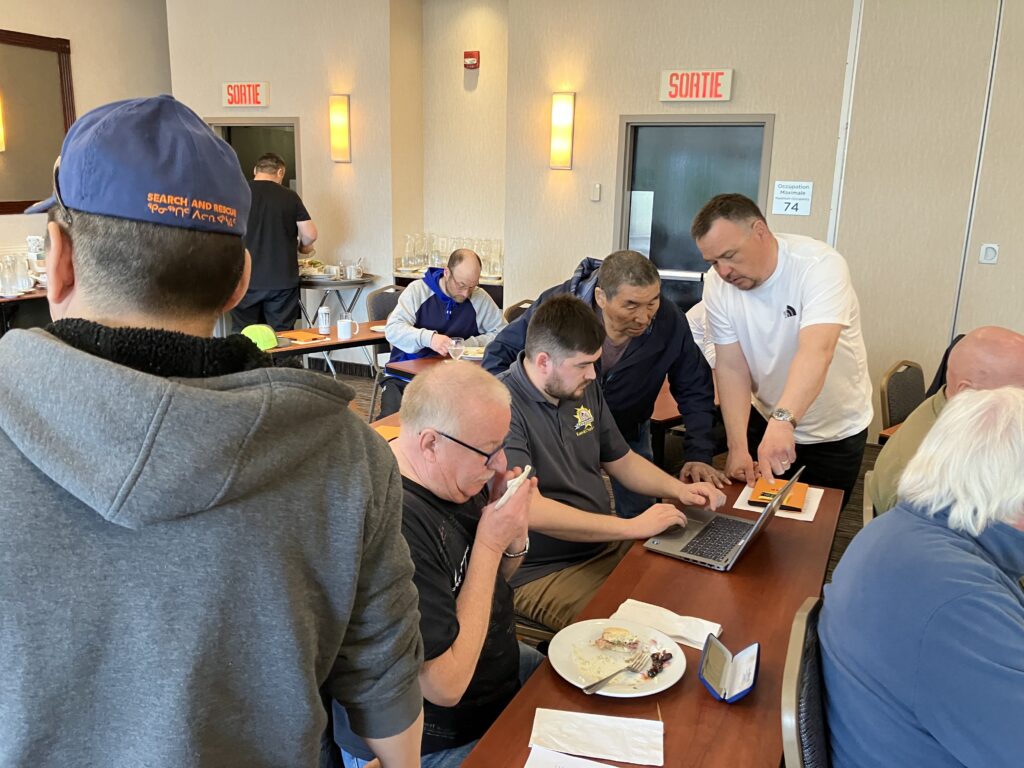
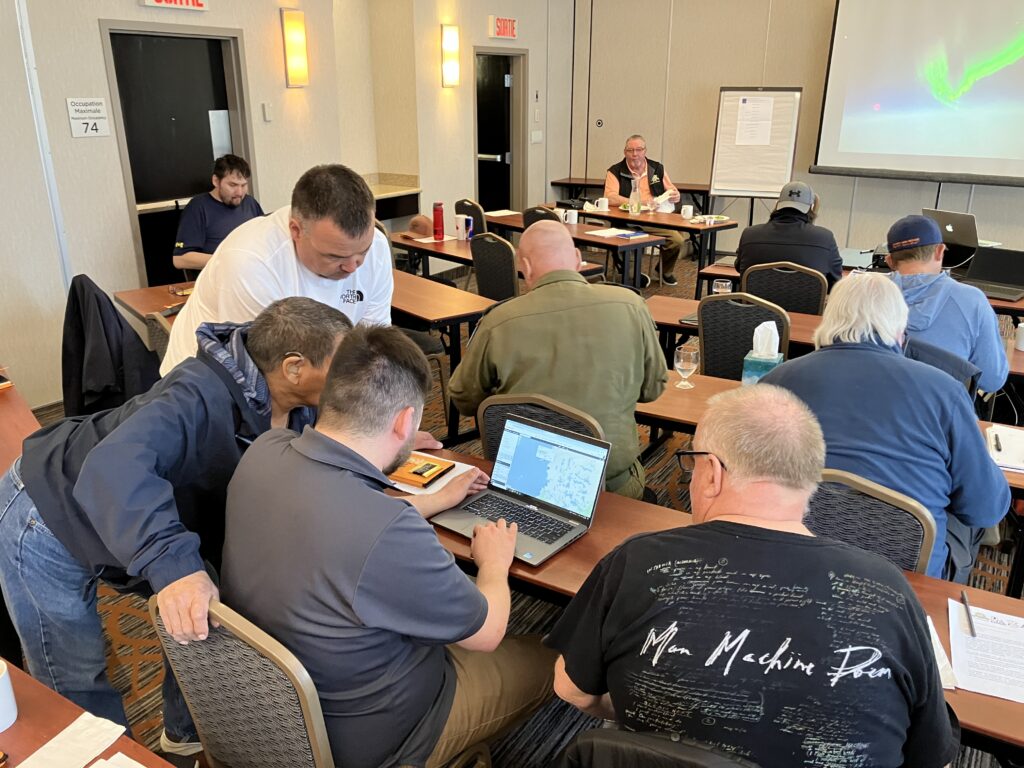
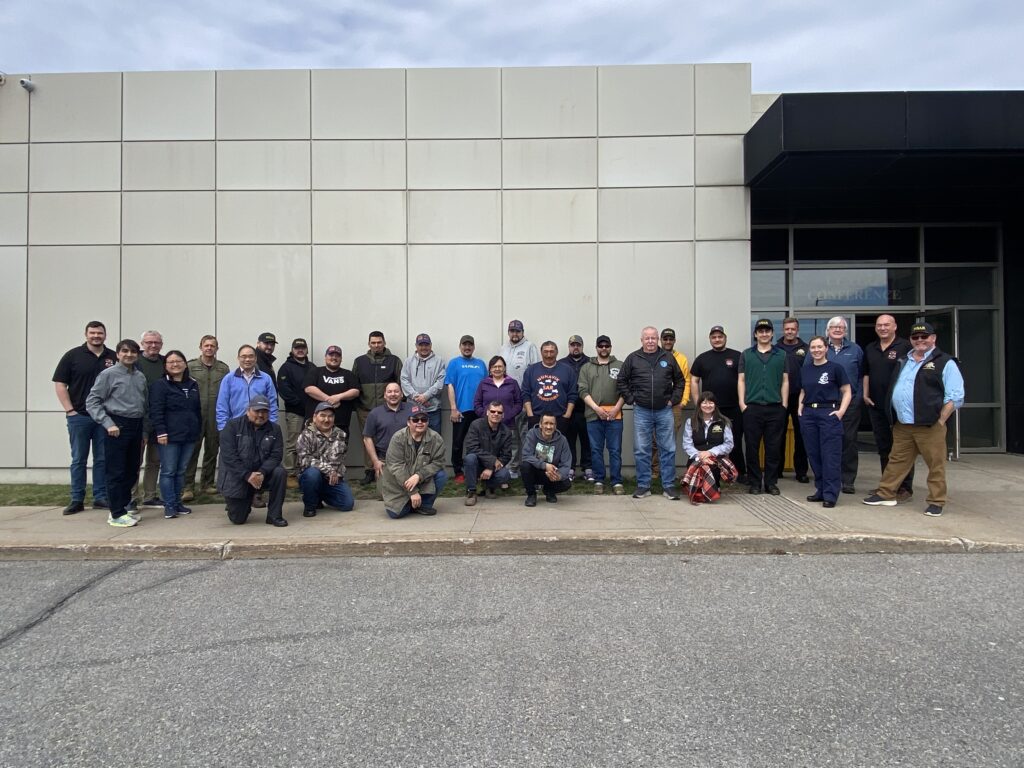
Arctic SAR Exchange 2025: Operating at the Speed of Trust
Halifax and Greenwood, Nova Scotia, 1-4 March 2025
The Arctic Search and Rescue Exchange is built on one core idea: that relationships and collaboration constitute the foundation of an effective search and rescue system. Relationships rooted in trust and respect allow SAR team members and partners to work together during operations, to understand each other’s resources, capabilities, and limitations, and to overcome challenges.
A lot of progress has been made since Arctic SAR Exchange 2023 and the first Nunavik and Nunavut SAR Roundtables. Arctic SAR Exchange 2025 focused on how do we build on these positive developments to strengthen and sustain the relationships, frameworks, and procedures that foster collaboration in Arctic SAR. How can we work better together? How can we operate at the speed of trust?
At the same time, while we have this group of experienced SAR responders and researchers together, we also took time to work through areas for improvement, share best practices and lessons learned, and co-develop tools that can help make SAR operations more effective. In particular, we explored best practices and critical requirements for SAR training, planning, and management.
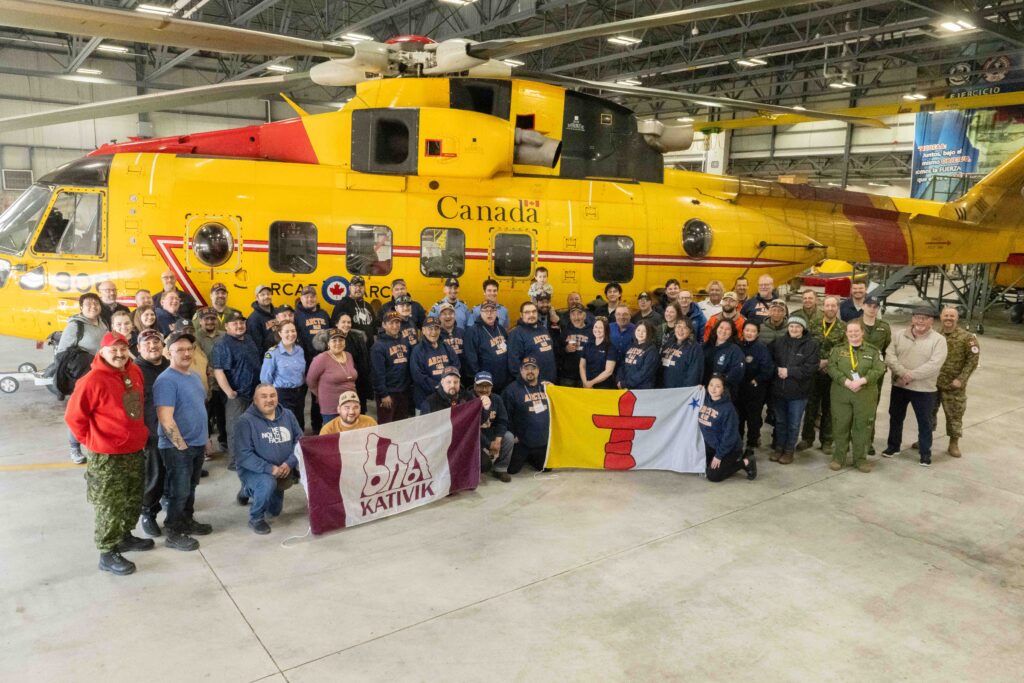
Photo by: Corporal Chris Hilchey
Nunavik SAR Roundtable 2025: Finding the Trail Forward
Montreal, Quebec, 28-30 March 2025
This roundtable’s theme is Finding the Trail Forward. While significant progress has been made on the challenges identified at the first roundtable in 2022, much work remains to be done. Together, we will learn about new initiatives, determine how to address ongoing issues, and explore the future of SAR in Nunavik, establishing priorities for key areas such as training, equipment, and communications. Critically, we will discuss and, hopefully, arrive at a consensus on how to build a governance framework for SAR in Nunavik. More than that, we will co-develop an action plan to bring our vision to life – not only finding the trail forward, but breaking it to reach a safer, more effective SAR system.
Agenda and Participant List / Draft Governance Framework for Nunavik SAR
Roundtable Funding and Support
The majority of funding and logistical support for the roundtable’s activities has come directly from the Kativik Civil Security Department and from the Nunavut-Nunavik SAR Project – a team of Canadian and UK academics and Inuit research partners focused on strengthening Nunavut and Nunavik’s whole-of-society SAR systems. The project involves researchers from St. Francis Xavier University, the University of Strathclyde, Dalhousie University, Trent University, and the Marine Institute at Memorial University, and is funded by the National Research Council of Canada and the United Kingdom Research and Innovation through the Canada-Inuit Nunangat-United Kingdom Research Program.
Additional funding and support for roundtable activities has been provided by:
- Canadian Coast Guard
- Department of National Defence
- North American and Arctic Defence and Security Network (network lead: Dr. P. Whitney Lackenbauer)
- Social Sciences and Humanities Research Council
- Irving Shipbuilding Chair funds of Peter Kikkert